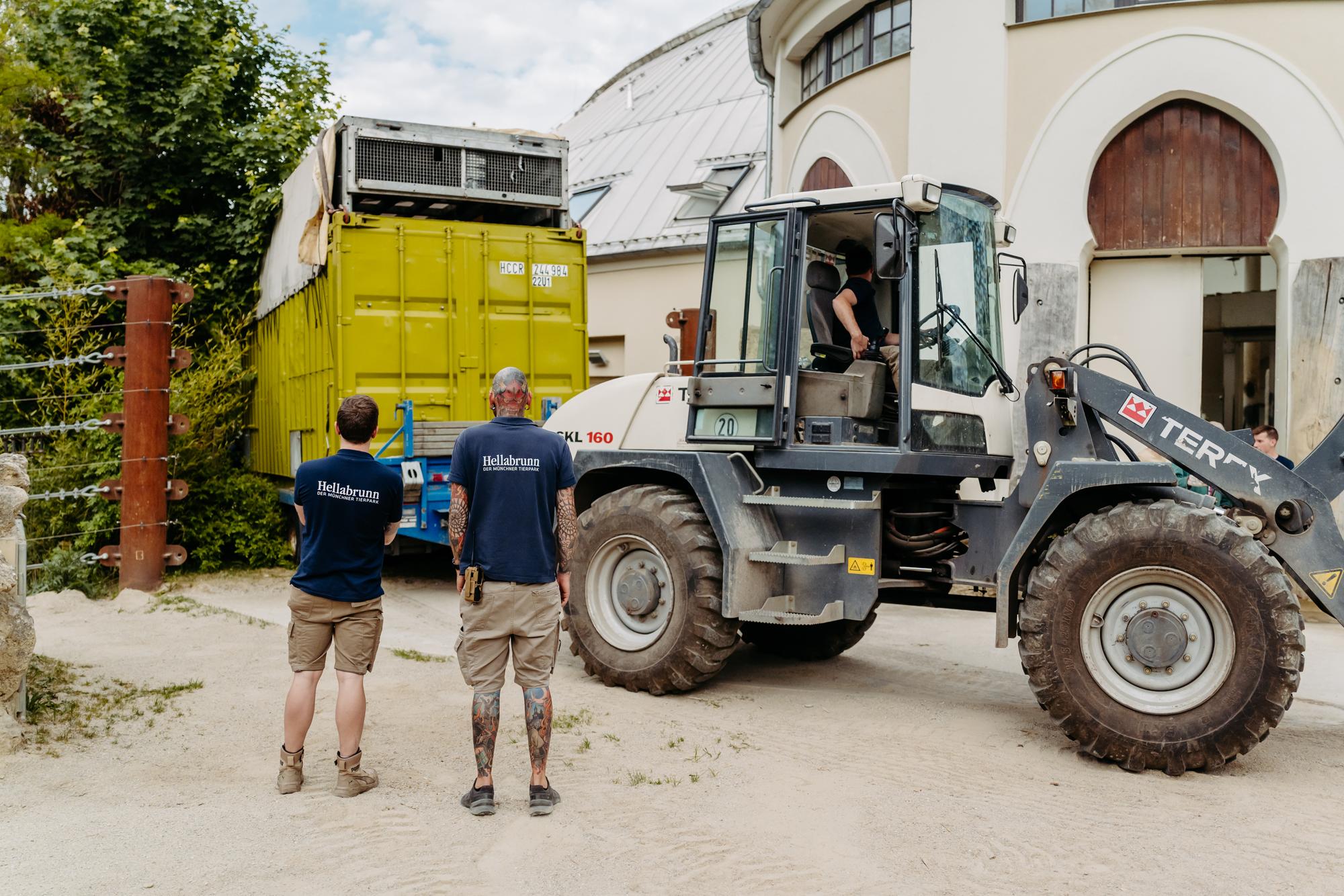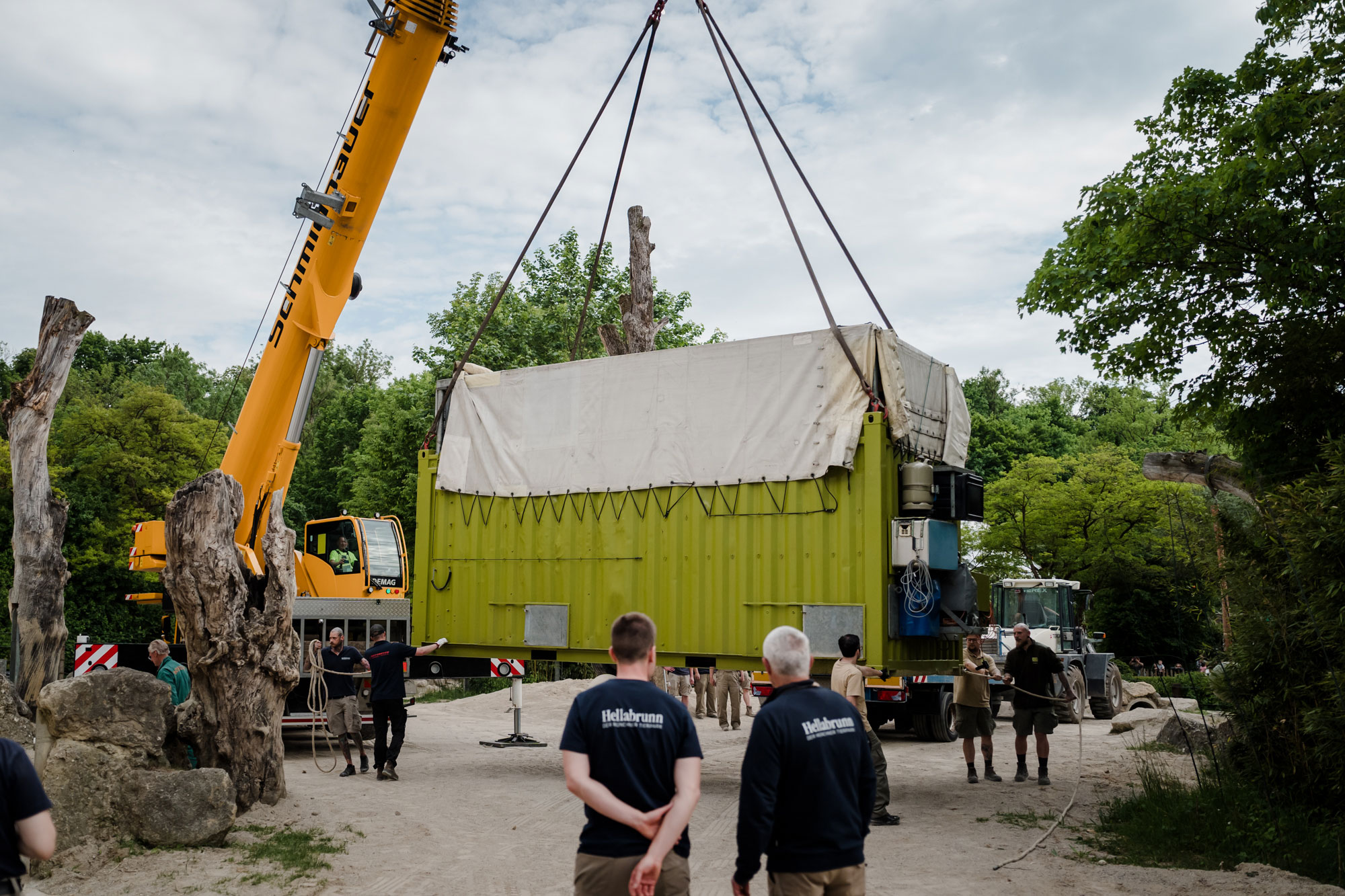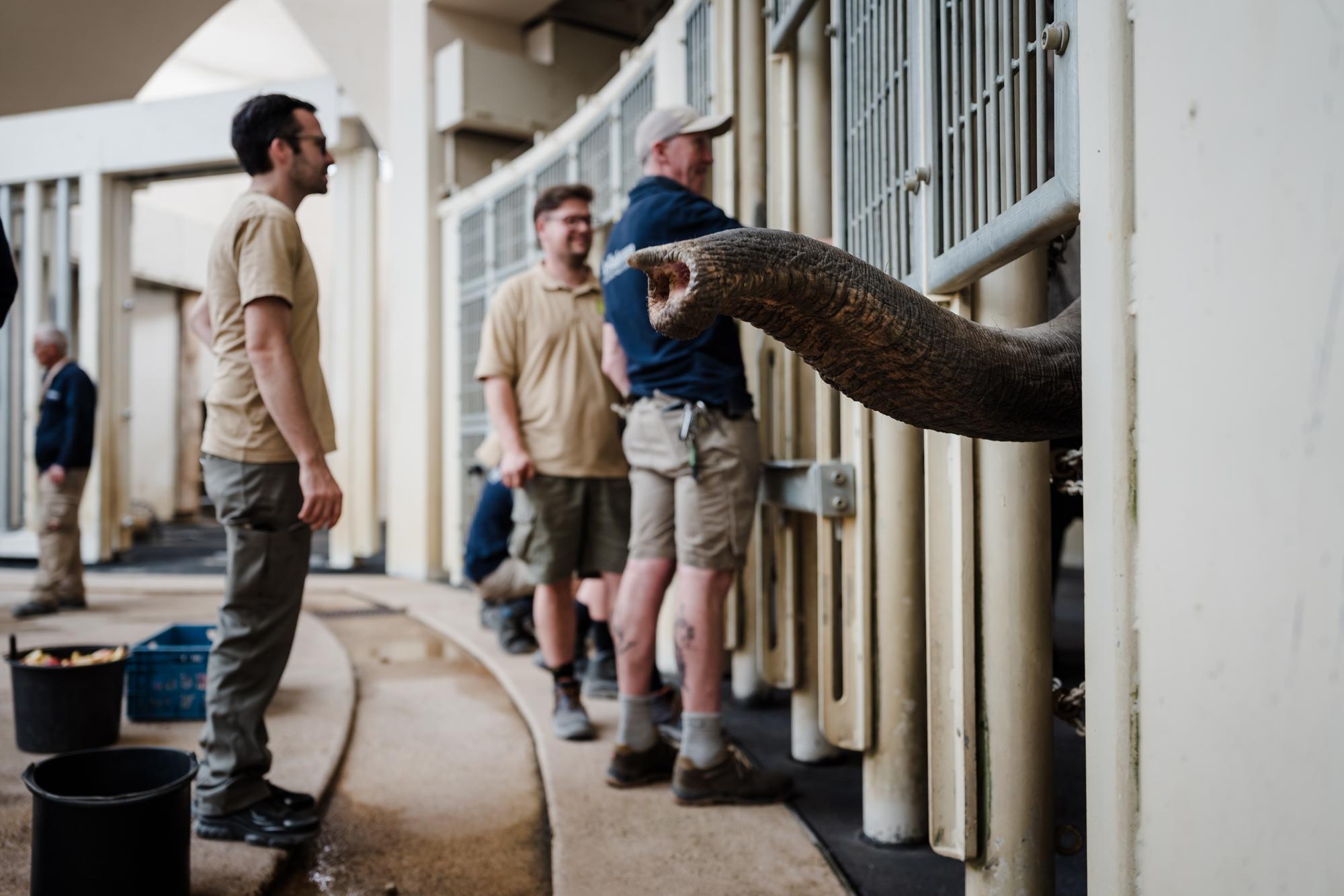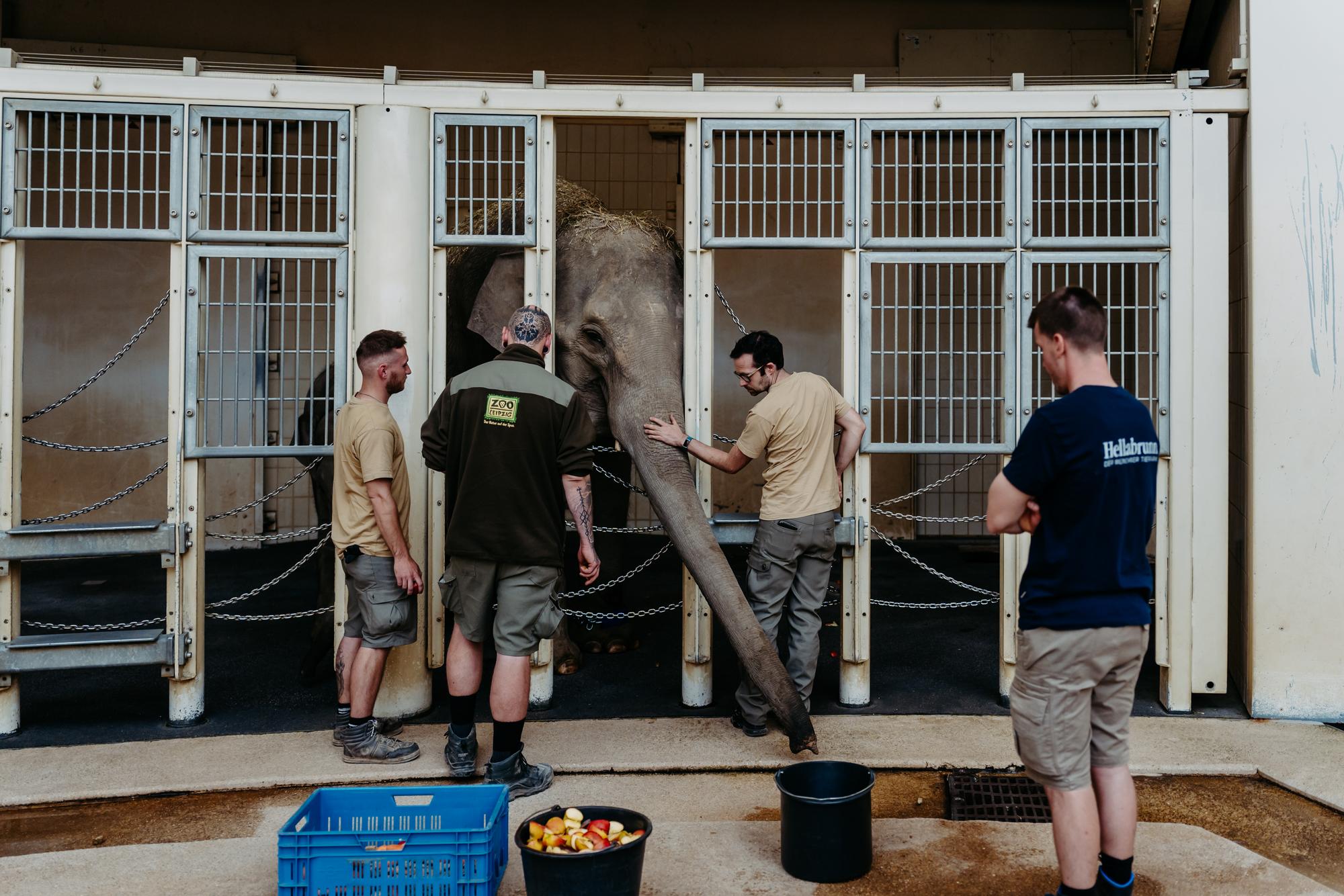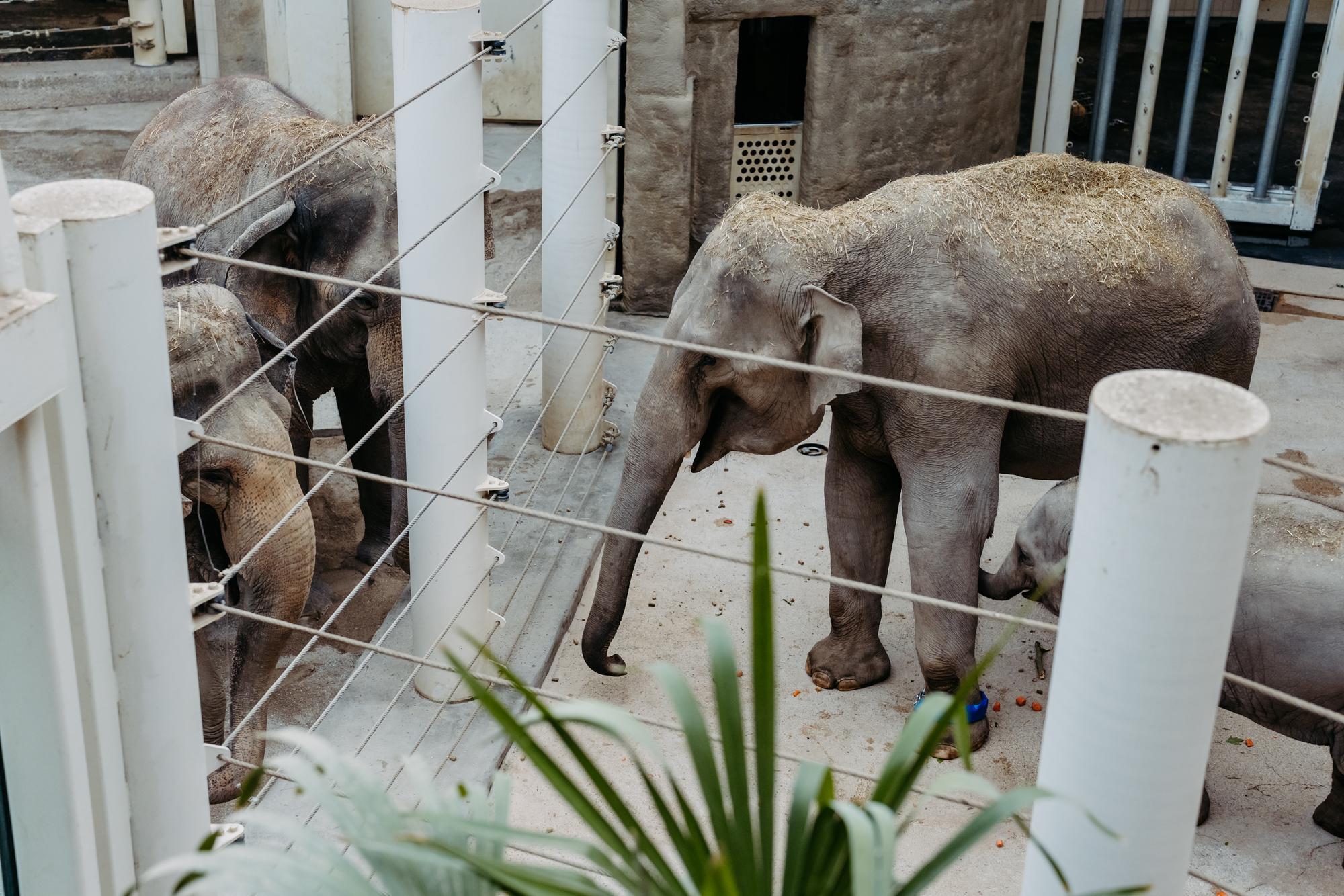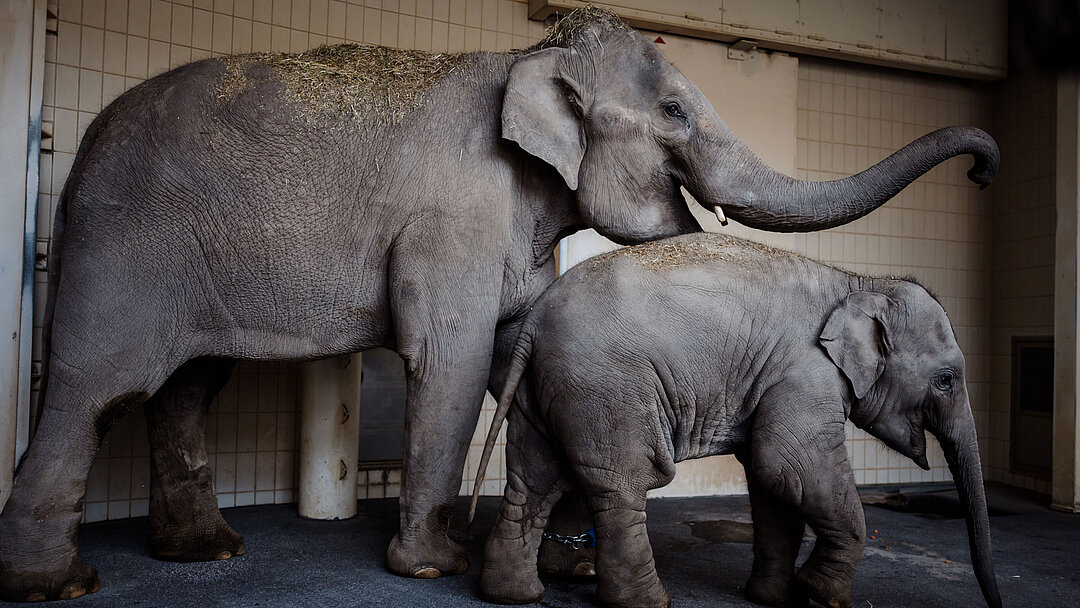
The arrival of two new Asian elephants has sparked a lot of excitement at Hellabrunn Zoo. "We are very pleased with the arrival of Rani and Savani and warmly welcome them to Hellabrunn," said zoo director Rasem Baban. "For everyone involved, transporting elephants using a low-loader and mobile crane is a special event. And of course, our existing elephant group and the two new arrivals now have to get to know each other."
Since arriving at Hellabrunn Zoo, Rani and Savani have begun to explore their new home. They were initially accompanied by their trusted zookeepers from Leipzig, who stayed with them in Munich for the first few days to help them settle in. Their new keepers at Hellabrunn Zoo are also familiar with the mum/daughter duo, having previously travelled to Leipzig to meet them and learn about their personalities and habits.
Verena Dietl, mayor and chairwoman of the supervisory board of Hellabrunn Zoo, is delighted about the new arrivals: "Rani and Savani bring a breath of fresh air to our elephant group – and are a wonderful example of how well a collaboration between science-led zoos works. I would like to thank everyone involved, especially the animal care teams from Leipzig and Munich, for the professional preparation and execution of the transfer. I am now very excited to see how the two settle in at Hellabrunn – and especially how little Otto will react to his new playmate."
Despite having to bid farewell to two of its residents, Leipzig Zoo’s director Prof Jörg Junhold is relieved that Rani and Savani have found a new home: "Despite all our efforts, we were unfortunately unable to fully integrate Rani into the existing herd led by matriarch Kewa. Tensions within the group grew, and eventually Rani had to be kept separately. We are therefore very happy to have found a zoo in a neighbouring state with an experienced elephant care team for both animals in Hellabrunn."
The settling in procedure for the new arrivals requires a great deal of flexibility and attention. In the coming weeks, the pachyderm keepers will therefore be working in shifts to ensure that animal carers will be present in the Elephant House at all times to observe the animals' behaviour and carefully supervise the integration.
"We will adapt our procedure to the animals' pace," said Daniel Materna, team leader of Hellabrunn‘s Elephant House. "Rani and Savani will first be allowed to recover from their journey and take time to familiarise themselves with their new surroundings. In the coming days, they will be gradually introduced to our four elephants, Otto, Temi, Mangala, and Gajendra."
Due to the privacy required for the animals to get to know each other during the settling in period, the Elephant House may be temporarily closed to visitors over the next few days. This means that the elephants may not be on view at all times – the focus is on the welfare of the animals.
Hellabrunn Zoo has been actively involved in species conservation for many years and participates in international EAZA Ex-situ Programmes (EEPs). The integration of Rani and Savani is a further step toward creating an elephant group based on the herd structure found in the wild, with clear family lines. The herd in Munich also play an important ambassadorial role for the Bukit Tigapuluh Landscape Conservation Programme in Sumatra, which Hellabrunn Zoo regularly supports. This protected area is one of the largest contiguous lowland rainforests in Sumatra and provides a secured habitat for many endangered species such as orangutans and elephants.
